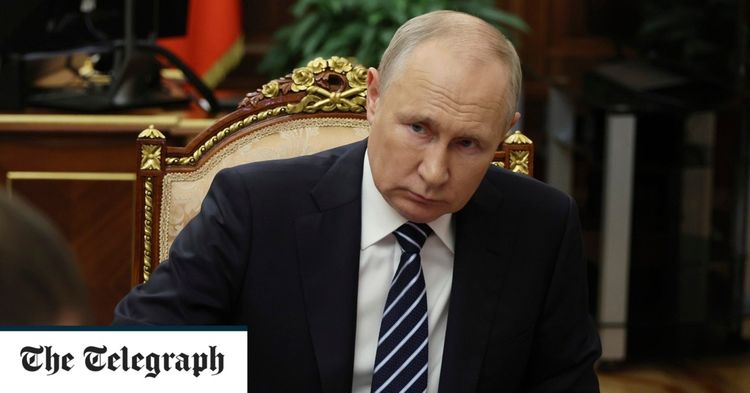Putin’s block on grain exports puts falling food inflation at risk, warn supermarkets

Supermarket executives have issued a warning that the recent restriction imposed by Vladimir Putin on the export of grains from Ukraine could potentially hinder the decline of food price inflation in Britain.
There are indications that the rapid increases in food expenses are gradually slowing down, as the supply challenges caused by the pandemic and Russia's aggression in Ukraine diminish.
The cost of food in August has increased by 11.5 percent in comparison to the same period last year, as reported by the British Retail Consortium (BRC). This represents a noticeable decrease from the 13.4 percent increase recorded in July and is the lowest it has been since September of the previous year.
The British Retail Consortium (BRC), an organization that represents supermarkets and retailers, has stated that the strain on certain food products like meat, potatoes, and certain cooking oils is starting to lessen.
However, the BRC's chief executive, Helen Dickinson, argues that Russia's choice to abandon the agreement that permits certain exports from Ukrainian ports poses a risk of undoing the positive indications.
She stated: "Although retailers are striving to reduce inflation, there are potential risks in managing supply chains."
Russia pulling out of the Black Sea Grain Initiative and aiming at Ukrainian grain facilities, along with weak harvests in Europe and other places, may act as obstacles to reducing inflation. If the Chancellor doesn't step in, a possible £400m increase in business rates bills starting from next April could definitely undermine attempts to address inflation.
She mentioned that the tax adjustments have additionally increased the burden on consumers as they have resulted in higher prices for certain beverages: "If the government had not raised alcohol duties recently, these inflation rates would have been even lower."
Additional factors contributing to rising living expenses later this year may include inflationary forces.
Concerns about potential strikes at Australian LNG export facilities have diminished, after initially causing an increase in natural gas prices in bulk markets. However, the vulnerability of the price to unexpected events highlights the potential risk that households and businesses may encounter during the upcoming winter season.
In the meantime, the energy price limit for households in the UK has decreased. However, due to the reduction in support for families to cover their expenses and the rise in the fixed charge, slightly more than one-third of individuals will experience an increase in their energy expenses as compared to the previous winter.
Nevertheless, official data indicates that wages are presently increasing at a quicker rate than prices.
According to the Office for National Statistics, the amount of money people earned in June increased by 8.5 percent compared to the previous year. This is even higher than the 7.9 percent increase in the cost of goods and services, which indicates that people's quality of life is finally getting better. Since then, the rate of inflation has decreased to 6.8 percent, which gives hope that workers will continue to have more money to spend.









































